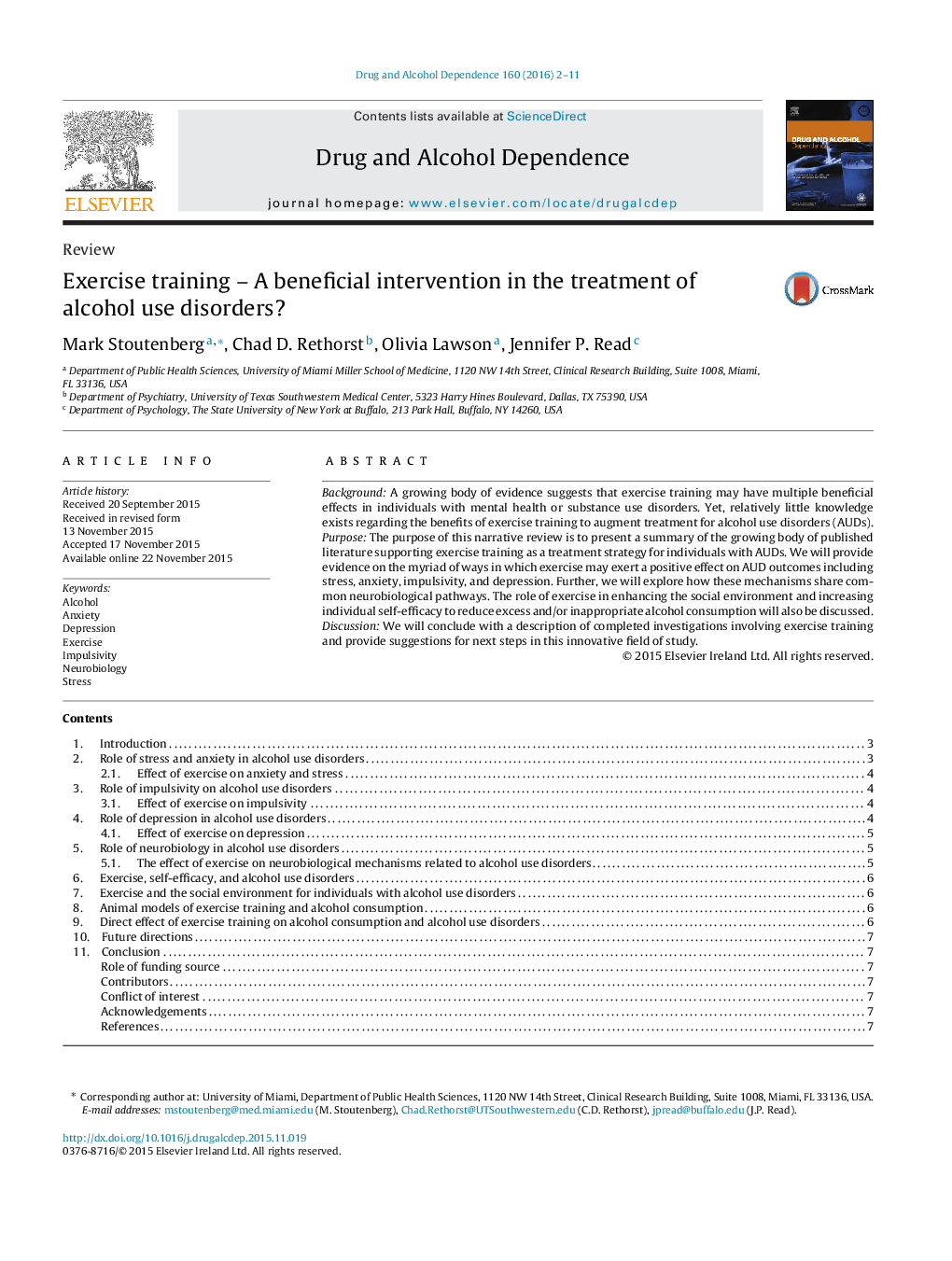| Article ID | Journal | Published Year | Pages | File Type |
|---|---|---|---|---|
| 1069700 | Drug and Alcohol Dependence | 2016 | 10 Pages |
•Exercise improves conditions, such as anxiety, stress, impulsivity, and depression.•Exercise increases self-efficacy and promotes socially supportive environments.•Few studies have examined the impact of exercise training on alcohol use disorders.•Residential programs may be an ideal location for integrating exercise training.
BackgroundA growing body of evidence suggests that exercise training may have multiple beneficial effects in individuals with mental health or substance use disorders. Yet, relatively little knowledge exists regarding the benefits of exercise training to augment treatment for alcohol use disorders (AUDs).PurposeThe purpose of this narrative review is to present a summary of the growing body of published literature supporting exercise training as a treatment strategy for individuals with AUDs. We will provide evidence on the myriad of ways in which exercise may exert a positive effect on AUD outcomes including stress, anxiety, impulsivity, and depression. Further, we will explore how these mechanisms share common neurobiological pathways. The role of exercise in enhancing the social environment and increasing individual self-efficacy to reduce excess and/or inappropriate alcohol consumption will also be discussed.DiscussionWe will conclude with a description of completed investigations involving exercise training and provide suggestions for next steps in this innovative field of study.
